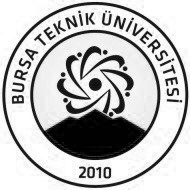- BTÜ'den HABERLER
- 25 Ekim 2025 , Cumartesi


Ömer Faruk KAYA

Bursa Technical University (BTU) will map the flow of Bursa’s water infrastructure. The project, which will reveal how water used in households and businesses moves through the infrastructure, will also examine Bursa’s drought status, the risks posed by climate change in the city, and its water future. At the end of the project, which will outline possible scenarios, a “water-sensitive urban design” for Bursa will be developed.
Led by Dr. Gökhan Gökmen, a lecturer in BTU’s Department of Maritime Business and Management, the “AquaSavvy” project has also received support from Horizon Europe’s Partnership for Driving Urban Transitions towards a Sustainable Future. The study, which aims to create a water-sensitive urban design, includes partner institutions from Portugal, Denmark, and Sweden. Over the three-year project, the Nilüfer Living Lab will be established and co-coordinated by Bursa Technical University and Bursa Metropolitan Municipality. There, the “hidden” nature of Bursa’s water infrastructure and its complex flows will be identified. Climate-related risks at the Bursa scale—such as drought and variability in precipitation—along with pressures related to industry and agriculture will be evaluated together in the living lab. The study will visualize and make Bursa’s water infrastructure visible, while also outlining the city’s water future. At the end, a “water-sensitive urban design” for the city will be developed.
Visuals to make water cycles visible
Providing information about the project, Dr. Gökhan Gökmen said: “AquaSavvy is a three-year, interdisciplinary research project aiming to develop a visual, interactive web tool that brings water-sensitive urban design into cities’ digital twins, making water cycles visible. Within the scope of the study, we will address the ‘hidden’ nature of water infrastructures and complex water flows through a visualization approach. In this way, on a co-designed ‘visual canvas’ supported by data platforms contributed by local communities, we will track and debate intra-urban water flows. With this study, citizens will be able to see how the water they use from the network travels and which waters it mixes with.”
Bursa-specific knowledge and solutions to be developed
Emphasizing that the study will generate knowledge and solutions specific to Bursa, Dr. Gökmen said: “In the Nilüfer Living Lab, we will assess climate-related risks at the Bursa scale—such as drought and variability in precipitation—along with pressures related to industry and agriculture. We will produce outputs such as a water management actor–relationship map and emotional dynamics, existing and needed water data, trends, and a scenario matrix. The Nilüfer Living Lab will be established under the guidance of Bursa Metropolitan Municipality and will serve as a testbed for city-scale digital twin applications and citizen participation. Here, we will produce Bursa-specific knowledge and solutions, and the methods and tools obtained will become a transferable model for other cities.” Dr. Gökmen added that they will also organize the AquaSavvy Urban Landscape Art and Design Competition as part of the project.
Rector Naci Çağlar: This project will be a model for sustainable urbanism
Bursa Technical University Rector Prof. Dr. Naci Çağlar said regarding the AquaSavvy project: “As a university, we do not limit our scientific research to academic publications alone; we also prioritize producing projects that directly contribute to our city and our country. The AquaSavvy project will not only provide an in-depth analysis of Bursa’s water infrastructure but will also create an exemplary model in terms of combating climate change and sustainable urbanism. Strengthened by international collaborations, I believe this project will both enhance our university’s scientific capacity and serve as an important guide for Bursa’s future.”

25 Eylül 2025

22 Ağustos 2025

26 Ağustos 2025

04 Eylül 2025